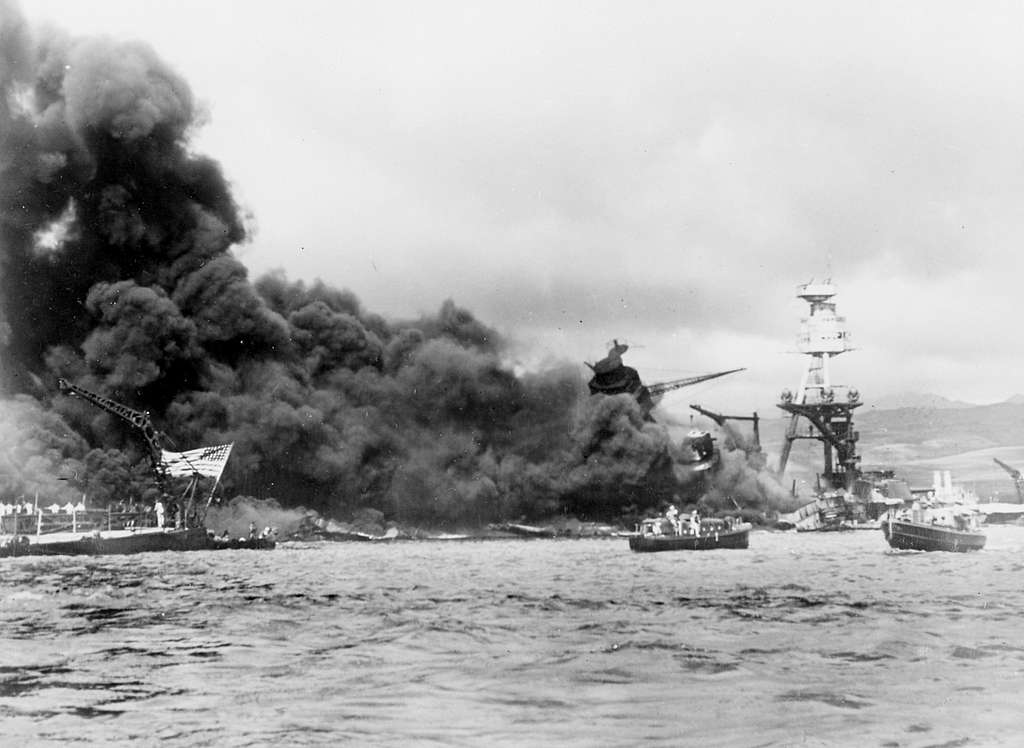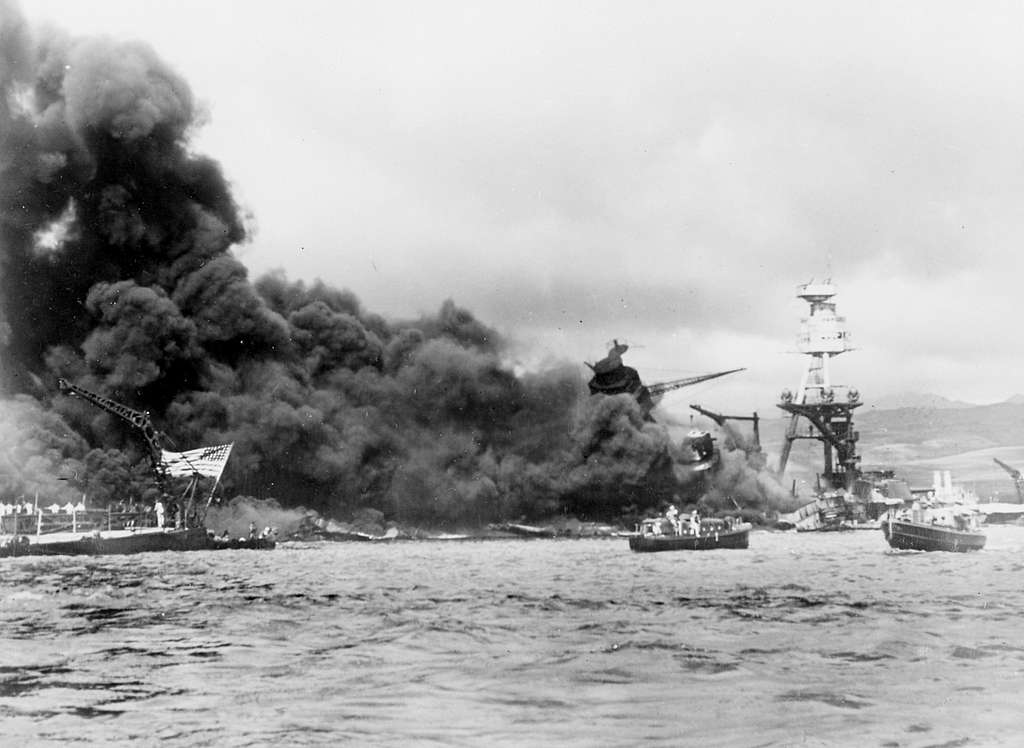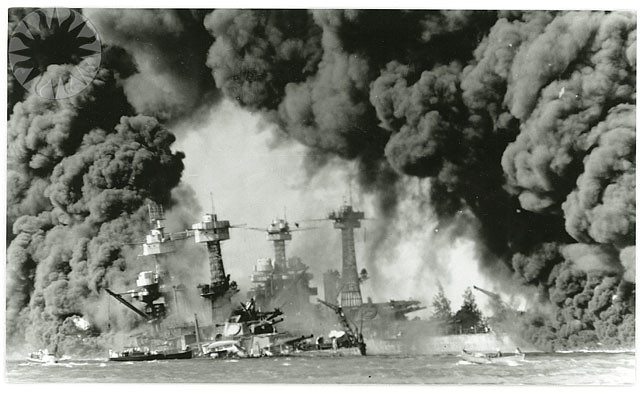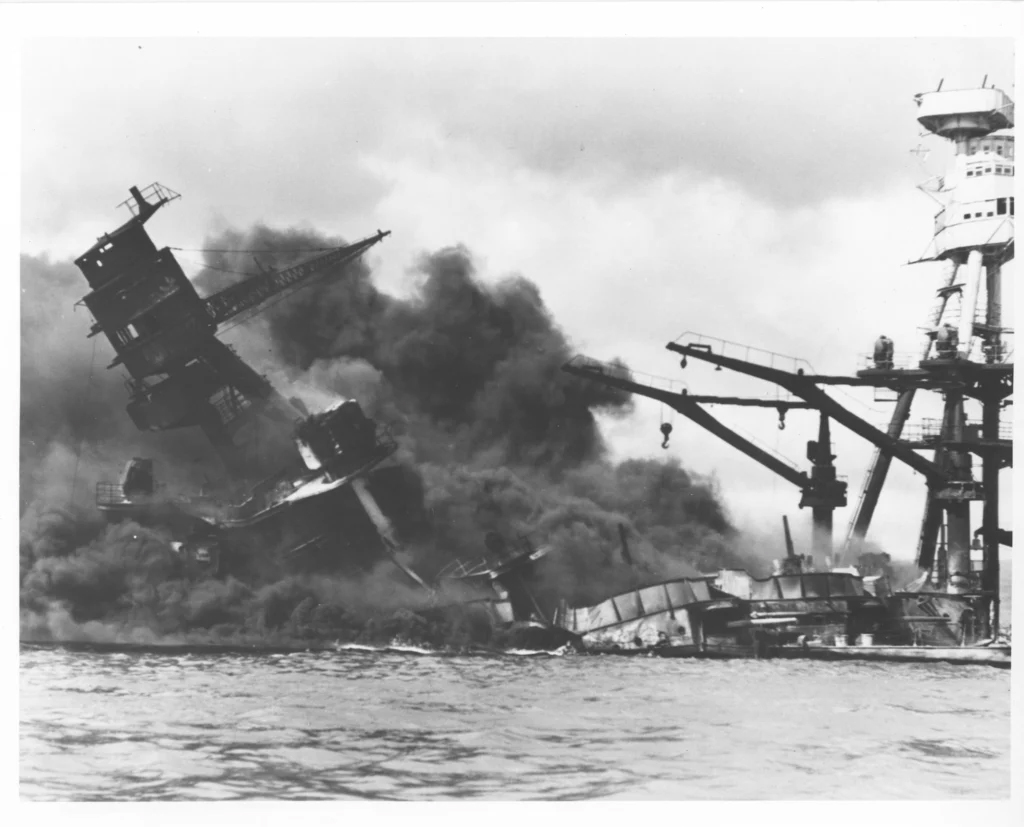The tragedy of Pearl Harbor




On the serene morning of December 7, 1941, the United States of America witnessed an event that would alter the course of history – the surprise attack on Pearl Harbor. The sun had barely risen over the Hawaiian horizon when the tranquility of the Pacific naval base was shattered by the roar of approaching aircraft and the thunderous explosions that followed. In the span of just a few hours, the U.S. Pacific Fleet was crippled, and the nation found itself thrust into World War II.
Dec. 7, 1941, forever remains etched in the collective memory of Americans as a day of infamy. The attack on Pearl Harbor, orchestrated by the Imperial Japanese Navy, marked a turning point in global affairs and propelled the United States into a conflict that would shape the course of the 20th century.
The surprise assault took place at 7:55 AM, catching the military personnel stationed at Pearl Harbor completely off guard. A total of 353 Japanese aircraft, launched from six aircraft carriers, descended upon the unsuspecting naval base. The devastating raid targeted battleships, cruisers, destroyers, and aircraft stationed on the island of Oahu. Within minutes, the harbor was transformed into a scene of chaos and destruction.
The USS Arizona, a battleship moored at Battleship Row, suffered a catastrophic explosion after a bomb struck its forward magazine. The ship sank rapidly, taking with it the lives of 1,177 sailors and Marines. The USS Oklahoma, another battleship, capsized, trapping hundreds of servicemen inside. In total, over 2,400 Americans lost their lives, and more than 1,000 were injured in the attack. The toll on military assets was staggering – eight battleships, three cruisers, and four destroyers were either sunk or heavily damaged.
The attack on Pearl Harbor was not merely a military strike; it was an assault on the very fabric of American society. The shock and grief that swept the nation were palpable. President Franklin D. Roosevelt addressed the nation that evening, delivering a speech that would become one of the most iconic in American history. In it, he declared December 7, 1941, as “a date which will live in infamy” and called for a declaration of war against Japan.
The aftermath of Pearl Harbor galvanized the American spirit and ushered in a newfound unity. The attack served as a catalyst, propelling the nation into a war footing. The home front mobilized for total war, with factories churning out weapons and supplies, and citizens contributing to war efforts through rationing and volunteer work. The attack on Pearl Harbor became a rallying cry for Americans, reinforcing their commitment to defend democracy and freedom against the forces of tyranny.
In the years that followed, the memory of Pearl Harbor continued to shape the nation’s identity and its role on the world stage. The Pacific theater of World War II witnessed fierce battles, including the pivotal Battle of Midway, where the tide began to turn in favor of the Allied forces. The courage and resilience displayed by those who survived the attack on Pearl Harbor served as an enduring inspiration for the American military and its people.
Today, the USS Arizona Memorial stands as a solemn tribute to those who perished in the attack. Visitors from around the world pay their respects, gazing upon the sunken remains of the battleship beneath the memorial’s stark white structure. The site serves as a poignant reminder of the sacrifices made on that fateful day and the indomitable spirit that emerged from the wreckage.
As we commemorate the anniversary of Pearl Harbor, it is crucial to reflect on the lessons learned from that pivotal moment in history. The attack on Pearl Harbor not only changed the trajectory of World War II but also shaped the global order that followed. It stands as a testament to the resilience of the American people and their ability to overcome adversity. The echoes of that day continue to reverberate, reminding us of the importance of vigilance, preparedness, and the pursuit of a just and lasting peace.




